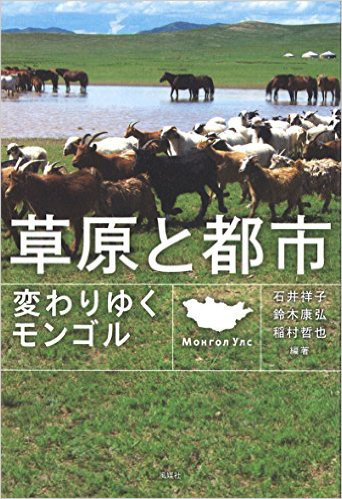Toward the Establishment of the National University of Mongolia–Nagoya University Cooperative Center for Resilience Research
Overview
“Resilience,” the flexible ability to recover from serious situations, is a key concept in building a safe, secure, and sustainable society sensitive to ethic culture and traditions. Mongolia, Japan and many other countries are facing global-environmental and urban issues in addition to impending natural disasters, and the necessity of considering forms of society and national land structure from the perspective of resilience has been identified. The results of research carried out from this perspective to date in the GRENE Urban Sector (representative: Yoshitsugu Hayashi, Nagoya University) have been developed as “resilience research.” In order to cultivate human resources to support this research, Nagoya University, the institution engaging with the issue, is advancing preparations for the establishment of a Cooperative Center for Resilience Research in partnership with the National University of Mongolia.
Background
Mongolia converted to democracy and a market economy in 1990. In 1992, it adopted a democratic constitution, changed its name to the current form, and formally renounced socialism. Private ownership of land began in 2003 and the capital rapidly modernized. From 2010, the economy expanded exponentially due to the development of underground resources and urban development proceeded at a swift pace with the construction of a new international airport and expressways, etc. Traffic and air pollution problems have escalated as a result of overcrowding and the rapidly-expanded capital has become more vulnerable to earthquakes, floods and other natural disasters. Despite this, countermeasures are lacking and urban redevelopment emulating that of advanced nations has further continued since 2012. Voices are increasingly calling for development planning that rectifies over-concentration in the capital and achieves a balance with rural areas.
Research Topic
The center has adopted as its key theme “Considering environmental, disaster prevention, and social issues of Mongolia and the world from a perspective that stresses resilience and sustainability.” Both universities have a track record of collaborative research on natural disasters, the environment, and regional social issues. We hope to formulate solutions while returning the results of this research back to society. We hope to envisage a resilient and sustainable society unique to Mongolia through bringing its traditional way of living in flexible harmony with nature into modern society. Our aim is to consider the issue from a comprehensive perspective incorporating natural science with humanities and social sciences, and foster comprehensive and panoramic vision, without being limited to specific and short-term measures. Furthermore, we will carry out the following in order to create a venue for discussion open to the public.
- Developing teaching materials and documents
- Holding public seminars
- Planning collaborative research and promoting student participation
- Investigating the potential for the introduction of a distance-learning system etc. (planned)
Results of activities by GRENE Urban Sector members in Mongolia
- September 15, 2014—The first pre-opening symposium “The importance of resilience learned from the Great East Japan Earthquake Disaster” was held. In addition to students, 100 people from both inside and outside the university attended and discussed the direction of the collaborative research center.
- October 13, 2014—The Cooperative Center for Resilience Research (preparation room) was established at the National University of Mongolia. A large number of panels explaining the natural disasters and social problems Mongolia faces were put on display, and the room was made open to students as a venue for them to gather. Feedback from student participants is still coming in.
- May 15, 2015—The second pre-opening symposium “Urbanization Control and Smart Growth Strategy towards Urban Resilience, Sustainability and Happiness” was held at the National University of Mongolia. In addition to students, 100 people from both inside and outside the university attended to discuss transportation planning in Ulaanbaatar.
“Grasslands and City” (Fubaisha) published in March 2015.
The results of research on Mongolian resilience were summarized in a book.
Authors and editors: Shouko Ishii, Yasuhiro Suzuki, Tetsuya Inamura
The GRENE Urban Sector
The GRENE Urban Sector is one sector in the environmental information category in the university green innovation project “Green Network of Excellence (GRENE).” In the GRENE environmental information category, universities and research institutions that use environmental information to engage in the issue of adaption to climate change etc. aim to construct a network with the Data Integration and Analysis System (DIAS) as the core infrastructure to promote the use and application of environmental information and to cultivate human resources to that end.




